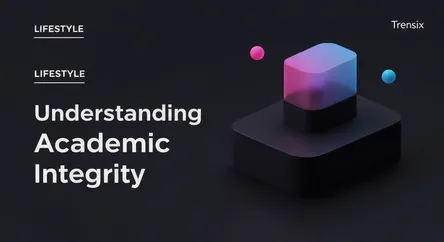Lifestyle
Understanding Academic Integrity

Discover the core principles of academic integrity, why it's crucial in education, and how it upholds the value of learning and personal honesty.
What is it?
Academic integrity is the commitment to honest and ethical principles in all scholarly activities. It is a foundational value in education, encompassing qualities like honesty, trust, fairness, respect, responsibility, and courage. In practice, this means students and researchers produce original work, properly cite sources, and avoid actions such as plagiarism, cheating on exams, falsifying data, or submitting one assignment for multiple classes without permission. It's about taking ownership of your intellectual journey and contributing to the academic community with authenticity.
Why is it trending?
The rise of digital technology and AI writing tools has brought academic integrity to the forefront of educational discussions. The ease of access to information online and the capabilities of generative AI like ChatGPT present new, complex challenges for defining and upholding original work. As a result, educational institutions are intensifying their focus on policies, updating honor codes, and employing sophisticated plagiarism detection software. This has sparked a global conversation about the future of assessment and the importance of teaching digital literacy and ethical research skills.
How does it affect people?
For students, upholding academic integrity is vital for genuine learning and personal development. It builds critical thinking skills and ensures that their qualifications are meaningful and respected. Breaches can lead to serious consequences, including failing grades, suspension, or even expulsion, damaging future academic and career prospects. For the wider community, it preserves the credibility of educational institutions and the value of research. It ensures that degrees and scholarly publications are trustworthy, maintaining public confidence in the entire academic system.